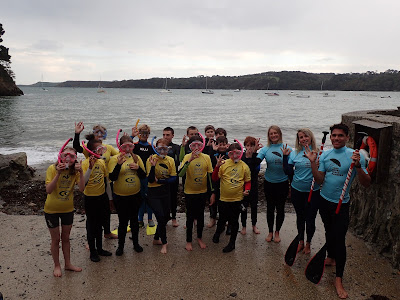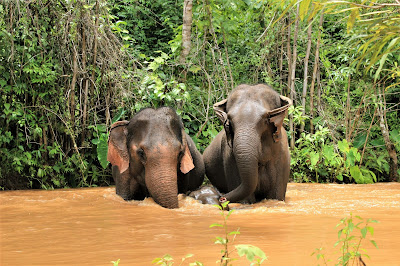
Conservationists from across Cornwall continue to lead the UK’s battle against alien invaders.
The second annual Cornwall Invasive Species Forum, organised by Cornwall- based conservation group
SINNG (Student Invasive Non-Native Group), was held at Porthcurno Telegraph Museum recently with delegates from across the region attending.
A full house of representatives from a wide range of stakeholder groups were present to contribute including the National Trust, Natural England, Duchy of Cornwall, South West Water, Environment Agency, Cornwall Council as well as other ecologists.
The aim of the forum event was to coordinate action and awareness on the impacts of invasive non-native species with a range of organisations collaborating, looking at the problems these species pose and discussing possible solutions.
Nicola Morris, a Lecturer at Cornwall College Newquay and Project Coordinator of SINNG, said: “The forum was a huge success and I was pleased to see so many people in one room intent on making a difference to the environment in Cornwall by taking action on invasive species.”
Nicola continued: “Through the forum we now have a means of linking anyone working with invasive non-native species in Cornwall with other projects in the county and further afield.”
Through the support of the Environmental Records Centre for Cornwall and the Isles of Scilly (ERCCIS), there is now an invasive species recording page for Cornwall which will soon be embedded into the SINNG website. The ERCCIS is also mapping the various projects in Cornwall relating to Invasive non-native species that will provide more detailed information to forum members.”
Animals and plants from all over the world have been introduced to Britain by people and while most are harmless, 10-15% spread and become invasive. This can lead to them harming the environment and our wildlife, impacting on the economy, or even posing a risk to our health and the way we live.
Nicola continued: “Most people are familiar with the problems that Japanese knotweed can cause. But other species are becoming a serious problem such as American skunk cabbage and some animal species such as the freshwater zebra mussel.”
Nicola, who chairs both Cornwall and the South West Invasive Species Forums, sees the forum events as being umbrella groups supporting a wide range of stakeholders, able to offer support, share knowledge, expertise and potentially offer practical support where possible.
Nicola explained: “With such a wealth of experience in Cornwall from people who have been working with invasive species for many years, we are in a good position to coordinate management of these invaders in order to be most effective in the control of invasive species and raise awareness of their impacts. I would like to thank everyone who contributed; including a hugely entertaining presentation from beekeeper Martyn Hocking, who found and reported the Asian hornet in Devon. We learnt how to identify the hornet and tell it apart from the larger native European hornet and were thoroughly entertained and engaged by Martyn.”
Nicola also thanked Simon Hocking from the National Trust, who not only provided the venue and catering but an informative guided walk as well:
“We were also fortunate to have Simon from the National Trust lead us on an afternoon field trip to see some of the areas where he is tackling the problems caused by invasive species. The weather was glorious which made for an enjoyable walk.”
Cornwall is leading the way with this type of conservation work and with The EU Commission regularly engaging with SINNG online, Nicola couldn’t be happier: “The EU Commission regularly tag SINNG in tweets and they re-tweet our posts. To have the Cornwall Invasive Species Forum having regular national and international engagement is just fantastic.”
Anyone interested in joining the Cornwall INNS Forum please contact Nicola Morris on: nicola.morris@cornwall.ac.uk
















































